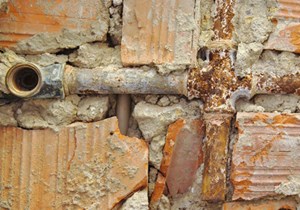EPA mandates lead pipe replacement within 10 years, allocates $44 million to New Jersey for clean water
(UI) — The Biden-Harris Administration has introduced a new rule requiring U.S. water systems to replace all lead pipes within the next decade, aiming to reduce lead exposure and provide cleaner drinking water.
Under the Lead and Copper Rule Improvements (LCRI), water systems must identify and replace lead service lines, strengthen testing, and improve communication about lead risks.
The Environmental Protection Agency (EPA) also announced $44 million in funding for New Jersey to support lead pipe replacement projects in schools and homes. This funding is part of the Biden administration's broader effort under the Bipartisan Infrastructure Law, which dedicates $50 billion to upgrade drinking water and wastewater infrastructure nationwide.
EPA Administrator Michael S. Regan emphasized the importance of the rule in addressing long-standing public health concerns. “We’ve known for decades that lead exposure has serious long-term impacts for children’s health. And yet, millions of lead service lines are still delivering drinking water to homes,” he said.
Lead is a potent neurotoxin with no safe level of exposure, particularly for children. It can impair cognitive development, slow learning, and cause irreversible damage. In adults, lead exposure increases the risk of heart disease, high blood pressure, and kidney damage.
The EPA estimates that nearly 9 million homes in the U.S. still have lead pipes, many of which are located in lower-income areas and communities of color. The LCRI rule is part of a nationwide effort to address these disparities and ensure all Americans have access to clean drinking water.
New Jersey Governor Phil Murphy welcomed the funding, saying it will accelerate the state's efforts to remove lead service lines. “This newly announced funding will help New Jersey communities with the vital task of replacing all lead pipes within the next ten years,” Murphy said.
EPA also announced $35 million in competitive grants for reducing lead in drinking water. Communities across the country, including cities like Milwaukee, Detroit, Erie, and Denver, are using federal funds to replace lead pipes and improve public health.
The LCRI rule and infrastructure investments are expected to create jobs in local communities while enhancing public health and environmental justice.
Related News
From Archive

- Glenfarne Alaska LNG targets late-2026 construction start for 807-mile pipeline project
- U.S. water reuse boom to fuel $47 billion in infrastructure spending through 2035
- $2.3 billion approved to construct 236-mile Texas-to-Gulf gas pipeline
- Major water pipe break in Puerto Rico hits over 165,000 customers
- Potomac River Tunnel project enters construction phase beneath Washington, D.C.
- Pennsylvania American Water launches interactive map to identify, replace lead water service lines
- Trump's tariffs drive $33 million cost increase for Cincinnati sewer project
- Utah city launches historic $70 million tunnel project using box jacking under active rail line
- Tulsa residents warned after sewer lines damaged by boring work
- Fatal trench collapse halts sewer construction in Massachusetts; two workers hospitalized




Comments